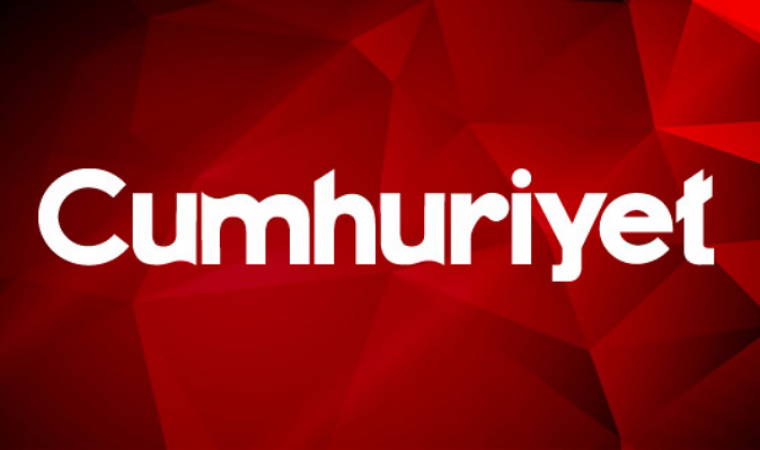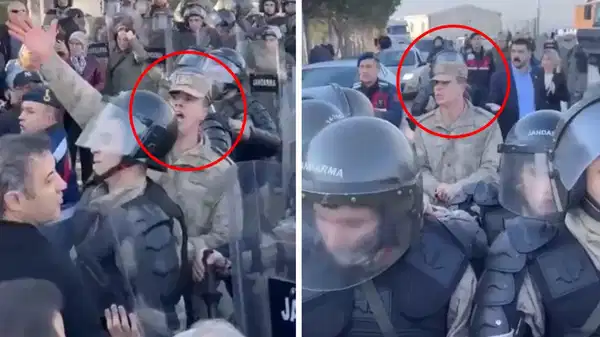DHA
We took this decision before a single vote had entered the system and without the political parties being notified... Just now, it is impossible for either us or the political parties to know how many such votes there are.’
Supreme Election Council Chair, Sadi Güven, responded to questions from members of the press about the referendum on constitutional change. Güven, saying that it was unknown how many unstamped voting slips were counted as valid, said, ‘The right to vote and participate in referendums is provided for in Article 67 of the Constitution and is a right that every citizen who meets the conditions envisaged by statute may exercise. We compiled the list of voters in line with this. Be it villager big Ahmet, trader big Mehmet or politician Mr Mehmet, whoever goes to vote, first a check is made as to whether their name is on this list. If their name is on the list of voters, the voting slip and voting envelope that we have sent from here is given to the voter along with a stamp by the polling committee. The citizen goes to the ballot box, duly stamps his preference in the place he or she wishes and casts it in the ballot box. The duty incumbent on the citizen ends in this manner.’
‘FORGED VOTING SLIPS AND ENVELOPES ARE IN ANY CASE INVALID’
Güven, stating that the envelopes and voting slips provided in the referendum were documents that were specially produced by the Supreme Election Council, said ‘Just like on banknotes, if you lift them up you will see the name of the Supreme Election Council watermarked. The allegedly invalid voting slips and envelopes that were given to citizens and have been a matter of debate since yesterday evening are voting slips and envelopes that were produced by the Supreme Election Council and are real, genuine and unforged. Forged voting slips and envelopes are in any case invalid. Nobody is in any doubt.’
‘DESPITE OUR INFORMING POLLING COMMITTEE STAFF IN TRAINING’
Supreme Election Council Chair, Sadi Güven, recalling that political party representatives served on polling committees, commented, ‘The legislator, alongside these voting slips and envelopes that are produced with a watermark, has taken a second measure and has wished for there to be a second-stage safeguard in the form of the polling committee chair and members applying a stamp. As you know, political party representatives serve on polling committees. In the face of an act of error, negligence or intent on their part, we, as the Supreme Election Council, decided that the citizen should exercise his constitutional right and his will should count at the ballot box. The real citizen, the citizen with the right to vote, has cast the voting slip he has been provided with and that has been produced by the Supreme Election Council and is not forged. We have deemed failings of this nature, negligent or intentional, simply on the part of the polling committee there despite our informing polling committee staff in training, our training them and sending messages to their phones on the morning of the poll, to amount to denying citizens their right to vote. This is not a practice we have engaged in for the first time. There were also a great many council resolutions in periods prior to us whereby, with votes alleged to have been fraudulent under similar circumstances, voting slips produced by the Supreme Election Council cast in this manner are valid unless the contrary is proven.’
‘WE TOOK THIS DECISION WITHOUT THE POLITICAL PARTIES BEING NOTIFIED’
Güven, stressing that the Supreme Election Council resolution had been taken before results had been entered into the system, continued, ‘We made the decision when the ballot boxes began to be emptied and before entering results into the system, that is, without anybody coming up with any idea or establishing whether the voting slips were stacking up for or against ‘Yes’ or ‘No’. Had we taken the decision later, maybe there would have been debate and it could have been said that this favoured one particular side. We took it with a problem of this nature cropping up as the ballot boxes began to be emptied in the interests of not depriving the citizen who was exercising his constitutional right of his right due to an error that was not of his own making and was attributable to the people officiating at the ballot box. We took this decision before a single vote had entered the system and without the political parties being notified. It is incorrect to misconstrue this decision. This simply lifts the restriction on the citizen expressing his political at the ballot box due to a mistake made entirely by polling committees. I hope that the results will be auspicious. We will know the final results in 11-12 days’ time.’
‘IT IS IMPOSSIBLE FOR US TO KNOW HOW MANY SUCH VOTES THERE ARE’
Supreme Election Council Chair, Sadi Güven, noting that it was not currently known how many of the controversial voting slips there are, said, ‘We, at the moment, really do not know if this is one thousand, five thousand, ten thousand or twenty thousand. When these come back on objection – and as to whether they will come or not, I do not know, either. This will be looked into. Just now, it is impossible for either us or the political parties to know how many such votes there are. These are genuine votes, genuine voters, genuine stamps and votes cast validly. We deemed these votes to be valid. Province and sub-province election councils must calculate the results in line with this decision of ours.’















